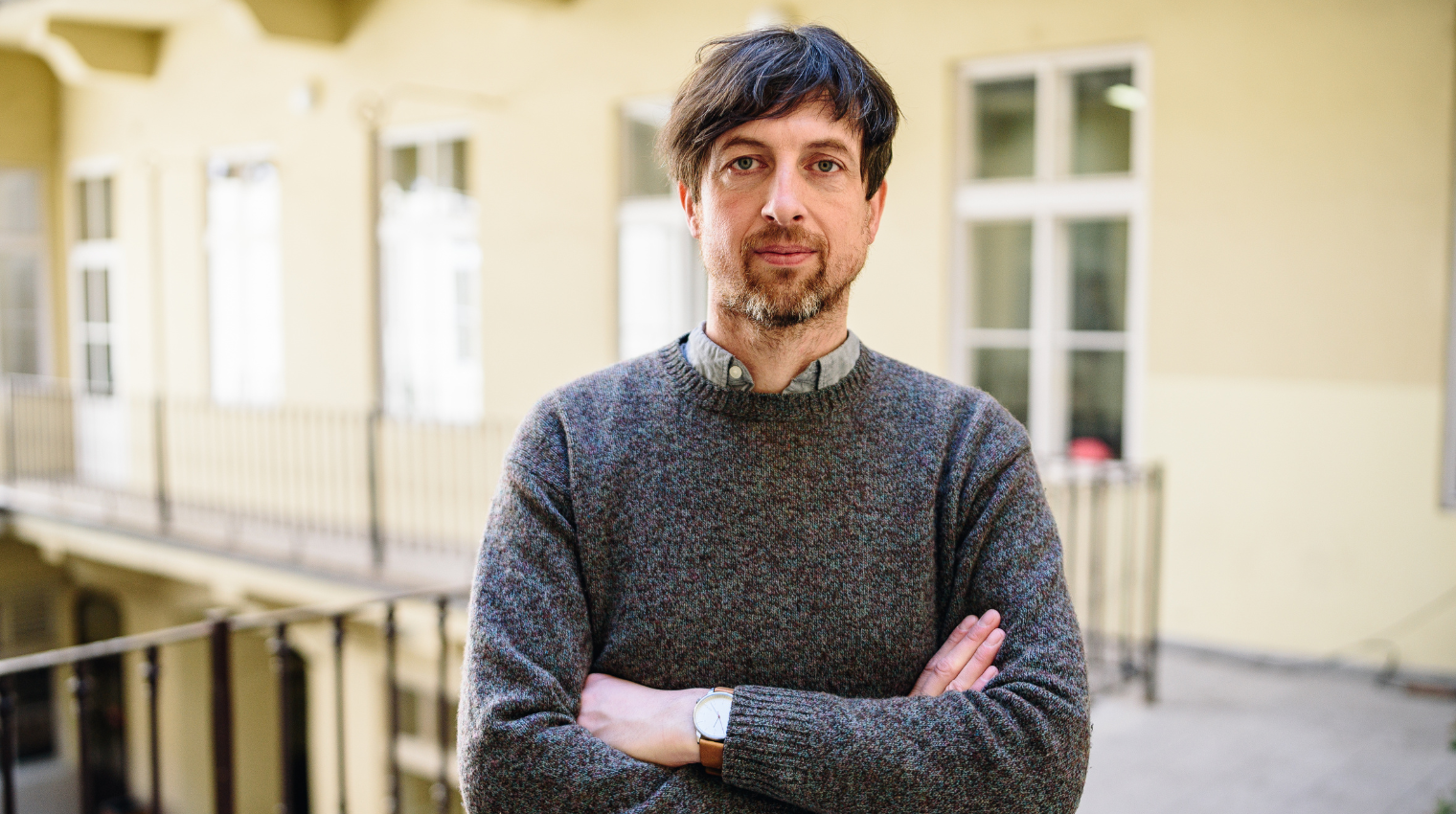PR: The prestigious European grant goes to an expert from the Faculty of Social Sciences, Charles University. In his project, he will research the gaming industry
PR: The prestigious European grant goes to an expert from the Faculty of Social Sciences, Charles University. In his project, he will research the gaming industry
Prague / Brussels, December 3, 2024 – Associate Professor Jaroslav Švelch from the Institute of Communication Studies and Journalism, Faculty of Social Sciences, Charles University (ICSJ FSV UK) received a prestigious grant from the European Research Council, the so-called ERC Consolidator Grant. He thus became the first expert in the history of FSV UK to receive this type of internationally recognized grant. For work on his project with the abbreviation GAMEINDEX, in which he will research digital games and applications for virtual reality, he will receive 1.8 million euros.

"It's a great honor and great news not only for me and the faculty, but also for all social sciences and humanities researchers dealing with computer games," says Švelch, who has been involved in the history, theory and empirical study of this medium for a long time. "First of all, I would like to congratulate Assoc. Prof. Švelch on his amazing success. Since this is already the third ERC grant that is carried out at the faculty, I believe that it is part of a more general trend and a confirmation of the quality of science and research at FSV UK. And I hope that this success will encourage other colleagues to strive for this grant," emphasizes Tomáš Karásek, Dean at FSV UK.
In his five-year project GAMEINDEX, full title Politics and aesthetics of indexical representation in digital games and VR, Švelch will focus on which places and groups of people are represented in contemporary digital games and applications for virtual reality (VR) and what techniques they use for it. He will employ the concept of index, known from semiotics, but underappreciated in the study of digital media. "The index can be understood as an imprint or a trace of material reality in the displayed object. That is why we will directly observe in game studios how developers use techniques such as motion capture or 3D scanning, which digitize actors' performances, objects or buildings. In addition, the index can be understood as a reference to some real place, for example in the case of games that take place in a certain city or building. These are often locations known from Western popular culture such as the streets of New York or Paris, but gradually locations from Central and Eastern Europe are also included in the games. Therefore, we will also be interested in what places and groups of people are represented in the games and what techniques are used to display them," explains the game scientist.
GAMEINDEX is unique in that it will study media imaging already in the process of producing digital games and virtual reality applications. "Our goal is to move the study of media representation from a critique of stereotypes in game content to an understanding of the production processes that influence game content. An important result of the project will also be a database of games that take place in real locations, especially peripheral ones. This database can serve as inspiration for creating more diverse and fairer representations of the real world," says Švelch.
European Research Council grants are among the most prestigious on a European scale, and obtaining them represents one of the greatest professional achievements for researchers. Specifically, the ERC Consolidator Grant aims to support the independent careers of outstanding young scientists at the stage when they need to strengthen or expand their own independent research team or program.
Recently, another type of ERC grant, the so-called ERC Starting Grant, went to two researchers at FSV UK. In autumn last year, it was received by Anežka Kuzmičová from the Institute of Communication Studies and Journalism. In her project WONDRE, she will investigate children's relationship to information and reading non-fiction. This September, ERC Starting Grant also went to Michal Smetana from the Institute of International Studies, who will investigate the stability of military alliances in his project called MICROCODE. You can read about the demanding process of obtaining an ERC grant here.
Assoc. Prof. Jaroslav Švelch is a researcher and teacher at the Institute of Communication Studies and Journalism at FSV UK. He studied linguistics/phonetics and English translation/interpreting at the Faculty of Arts, Charles University, and journalism and media studies at FSV UK, where he has been working since 2009. In 2007–2008 he was a visiting researcher at the Massachusetts Institute of Technology (MIT), in 2012 he completed a postdoctoral fellowship at Microsoft Research New England (MSR-NE), and in 2017–2019 he worked at the University of Bergen in Norway. He is the author of two monographs on computer games – Gaming the Iron Curtain (MIT Press, 2018) and Player vs. Monster (MIT Press, 2023). Since 2021, he has led the research group Prague Game Production Studies, which was supported by the Charles University PRIMUS program. Since 2024, he has also participated in the GAME-ER project, which is part of the European Union's Horizon Europe grant program.
You can read more about his research on the website about science at FSV UK
Media contact:
Kristýna Pružinová
Spokesperson at FSV UK
E-mail: kristyna.pruzinova@fsv.cuni.cz
Mobile: +420 778 743 979





